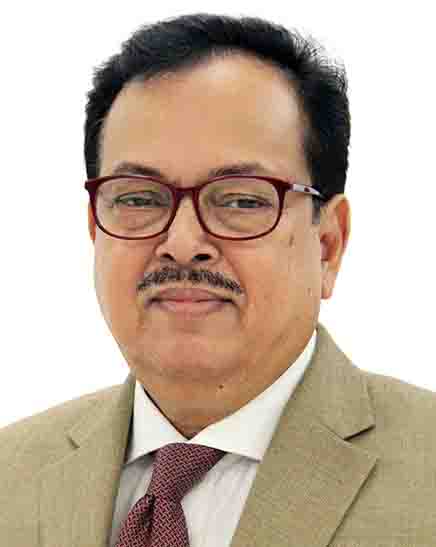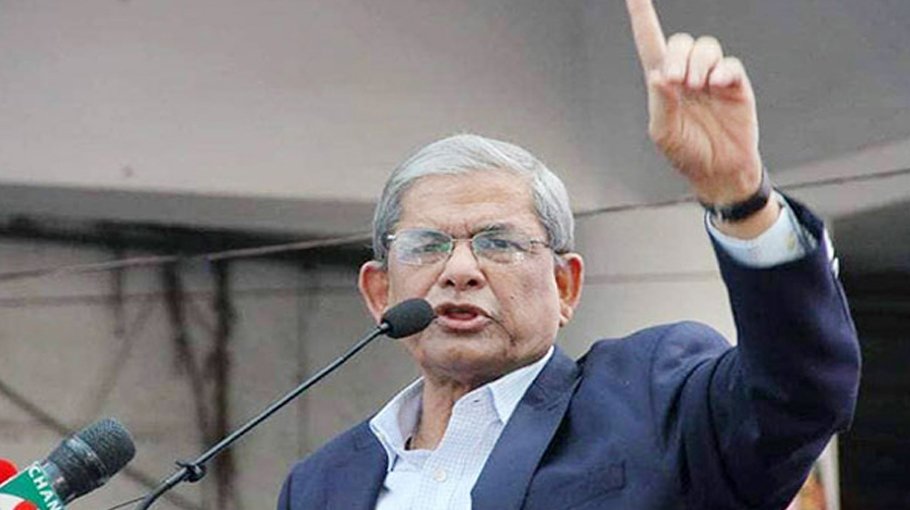December 10 mystery
What do they mean?

It has been mysterious and quite difficult to understand what the BNP exactly means. The party proudly declared that the government would be run by BNP Chairperson Khaleda Zia, a convict in graft case now on parole, after 10 December 2022. How a prisoner can run the country? That is the main question before the nation.
Some of the BNP leaders were saying that something unusual, which means something extra-constitutional, may happen and their dream will be materialised. Have they got that idea from the diplomats they are running after? If it is the sign of democracy, then the Western world, which has played a pioneering role in practising democracy in the world, will certainly be ashamed of the BNP version of democracy.
BNP leaders are frequently changing their demand. The day before yesterday they declared that their convicted leader will run the country just after the 10th of December this year and before that they had demanded the resignation of the present government, and just yesterday they decided that they will take part in the election under an interim government, the option which is always open, but they have not accepted even when the government offered them four posts of minister, including the Home Affairs Minister, but they missed the train. It was alleged that their leader in exile had taken bribes in exchange for party nomination from up to five persons for each constituency in the 2018 election and accordingly announced up to five candidates in a single constituency. It was a suicidal decision. Picking so many candidates for a single constituency meant none was sure who will contest the election which is why nobody spent money and time and nobody was serious about the election, leaving a free field for the ruling party to play.
Some people are pretending to be democrats. The practice of democracy began in city-states in ancient Greek and after several thousand years, it culminated in Abraham Lincoln’s doctrine, which defines that democracy is a “government of the people, by the people and for the people”. And it has steadily developed with its own characteristics. It controls itself. It loses its existence when it comes in contact with any adjective.
Democracy usually flourishes through elections and it can be further developed with Voltaire’s doctrine of the culture of showing respect for others’ opinions. And it can be institutionalised through fair practice by both the ruling and opposition political parties.
Bangladesh did not have a chance to proceed with its usual course as it was part of Pakistan. The path of democracy remained difficult and rocky as the Pakistani rulers were reluctant to practise it since the state’s inception in 1947.
The people of Bangladesh had defeated the Pakistani army but their followers are still creating a difficult situation in society in disguise. The Bangladesh Nationalist Party (BNP), one of the major political parties in Bangladesh, is in the habit of creating obstacles to the way of establishing democracy in the country by avoiding elections again and again.
Instead of participating in the election, the only democratic process to go to power, the party has been opting for the path of violence.
The BNP, in association with anti-liberation forces the Jamaat-e-Islami, burnt over 500 primary schools (set to be used as polling stations) to ashes during the elections in 2014. Besides, hundreds of polling and presiding officers also became victims of their anarchy.
The BNP is pursuing the politics of violence and is continuing to create anarchy in the country taking the wrong way that is leaving the people of the party in indecision. As a result, leaders, activists and supporters of the party cannot understand what actually the party’s leadership wants.
As the BNP is suffering from a leadership crisis, internal feuds and mistrust among senior leaders, its leaders and activists at the grassroots or field level cannot understand the policy of the party. They are now facing difficulties to understand whether the party would take part in the next parliament elections.
Senior leaders of the BNP have been saying that they have no trust in the Election Commission and which is why the party did not take part in the recent dialogue held between the political parties and the EC.
But, the BNP submitted its accounts of income and expenditures to the EC in writing, which is totally in contrast to its stand. Such type of contrasts has left even the party’s senior leaders in indecision.
In the name of the so-called protest and movement, they created countrywide anarchy, and killed hundreds of innocent people with petrol bombs and other types of terrorist acts in 2014. They set many buses on fire resulting in the deaths of innocent people in the country.
Political analysts and experts say that if the BNP does the same mistake as in 2014, the party would fall into severe disarray and the process of establishing democracy in Bangladesh would also face difficulty.
It is widely known that at present, the BNP has no leader to command the party. The main leader of the party, former Prime Minister Khaleda Zia, who is convicted by the court, is disabled due to various physical complications.
Instead of Khaleda Zia, her elder son Tariq Rahman, who is also on the run, has been given the charge of the BNP. But he could not come to Bangladesh as he was convicted by courts and is the suspect in the August 21 grenade attack on the then opposition leader and present Prime Minister Sheikh Hasina. Tariq is running the BNP staying in London over the phone or video conference.



